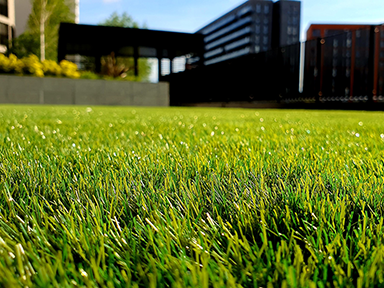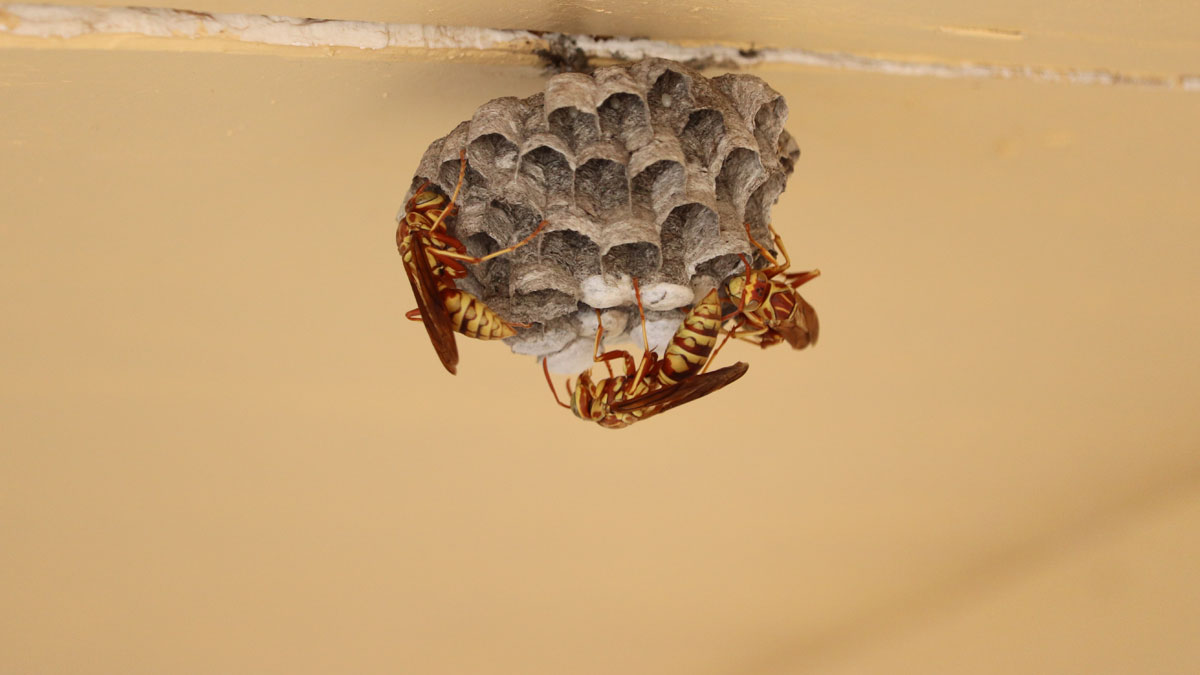No-one wants to find that they are living with pests or vermin. Especially when a claim relating to these nuisances cannot be made on a landlord insurance policy!
“Eew!”is often the first thing that comes to mind when pests and vermin are found at a rental property. However, this discovery raises an important question: Will insurance cover the costs of removal and damage caused by pests and vermin?
In a previous article, we clarified that the answer is usually "no." Why? Because insurers generally see pests like rodents or termites as a preventable and/or gradual problem that's related to the general upkeep of the property, not an unforeseeable or sudden event.
While we can’t help with insurance cover for pests and vermin, we know that infestations cause a lot of grief for landlords and tenants alike. So we’ve pulled together these top tips (and provided the links so you can get further details) for eliminating some of the most common uninvited and unwanted guests...
Rats and mice
To maintain a rodent-free environment, as suggested by BBC Wildlife, you can begin by sealing entry points and removing nesting materials, which prevents rodents from establishing homes on your property. Additionally, with recent updates in tenancy laws across many states allowing open communication about renting with pets, there may be more tenants with cats. In this context, owning a cat, known for its mouse-hunting skills, can be a proactive measure that supports your efforts effectively (NOTE: cover for damage caused by domestic pets - including cats - at a rental is covered by EBM RentCover).
For addressing existing rodent issues, use traps or baits carefully, especially in households with children or pets. According to RSPCA, it's important to ensure proper food storage in secure containers, promptly dispose of uneaten pet food, and emphasise proper trash disposal in secure bins to discourage rodents. Lastly, maintain a tidy yard by removing debris and weeds that can serve as hiding spots for rodents.
Possums
Eliminating possums from your property can be achieved through a variety of methods. One approach suggested by Environment NSW is to make your roof less appealing to these creatures by sprinkling quassia chips in the roof cavity or illuminating it with a light. Environment SA recommends more permanent solutions, such as purchasing or constructing a possum box, securing your roof to prevent possum entry, installing a one-way door in the roof, or obtaining a permit for a possum trap if necessary. Additionally, Realestate.com.au advises creating an environment that discourages possums by removing access to food and water sources, securing compost and veggie patches, and trimming trees and branches near your home. You can also explore non-invasive methods like using ultrasonic pest repellents, planting specific deterrent plants, or spreading garlic around your garden to keep these nocturnal visitors at bay.
Ants
When it comes to eradicating ants from your home, a variety of methods are at your disposal. For instance, Healthline suggests using a mixture of glass cleaner and liquid detergent or employing substances like ground pepper, peppermint, tea tree oil, and even corn starch to disrupt their pathways and deter them. Additionally, Healthline recommends using coffee grounds, borax, or lemon juice as effective natural repellents. Country Living provides further tips, emphasising the importance of maintaining cleanliness, managing your yard to prevent ant infestations, sealing potential entry points, and using vinegar to destroy the ants' pheromone trail. Boiling water can also be employed to eliminate ant nests effectively.
Termites/white ants
Homes & Gardens recommends using boric acid, cardboard traps, natural nematodes, diatomaceous earth, vinegar, or orange (or neem) oil to deter termites effectively (please seek guidance from your local nursery if you are unfamiliar with nematodes and diatomaceous earth). Architectural Digest suggests additional measures such as repairing damaged wood, employing insecticides, using termite baits, and installing termite barriers to protect your home. Choice emphasises addressing moisture issues, inspecting your home's surroundings, maintaining clear crawl spaces, removing wood in contact with the ground near the house, and scheduling regular professional pest inspections.
Cockroaches
In the battle against cockroach infestations, Better Homes & Gardens has provided a range of effective strategies to consider. These methods encompass using baits, traps, and cockroach bombs to target specific areas where roaches are active. You can also employ sprays and repellents to deter them. For those who prefer natural solutions, creating homemade mixtures with ingredients like baking soda and sugar can disrupt their feeding patterns. Additionally, essential oils can serve as a natural repellent.
Fleas
When dealing with fleas, you can employ a combination of strategies both inside and outside your home. Country Living offers tips for indoor flea control, such as using baking soda, salt, and lemon to create natural deterrents. Washing bedding in hot, soapy water can help eliminate fleas from fabrics. Additionally, rosemary, steam cleaning, and thorough vacuuming, along with pet-safe flea sprays, can effectively address indoor infestations. For outdoor prevention, Healthline recommends maintaining your lawn by regular mowing and thorough raking, removing debris, and spreading cedar chips or sulphur. Avoiding overwatering can further help deter fleas, while addressing wildlife activity can prevent reinfestations.
Bees and wasps
For a garden free of bees, Flower Power suggests avoiding strong-scented flowers and keeping the area dry. You can also use essential oils, soap and water, baby powder, garlic, or vinegar as deterrents. When dealing with European wasps, Health Victoria advises locating and eradicating their nests using a registered insecticide.
Spiders
Better Homes & Gardens has provided a range of strategies to help keep your home spider-free. Begin by thoroughly cleaning every corner to eliminate potential hiding spots. Remove any food sources that might attract insects, which, in turn, could draw spiders. Using peppermint oil can serve as a natural deterrent, as can placing chestnuts around your home. Incorporating cedar wood in various forms can help keep spiders at bay. For a DIY approach, you can create a cleaning spray with essential oils. Alternatively, using dish soap in a spray can be effective. Finally, turning up the music or keeping vibrations active can discourage spiders from settling in.
Snakes
To keep your property snake-free, you can follow a range of effective strategies. Snakes Away suggests keeping your house closed and ensuring there are no holes in windows, walls, floors, or roofs that could serve as entry points for these reptiles. Maintaining a tidy yard by removing excess leaf litter, fallen branches, and overgrown plants while keeping the grass mowed can help deter snakes. You can also use snake repellent devices and remove potential sources of food and water. Forbes recommends using gravel or river rocks for landscaping, getting rid of bird feeders, draining ponds or water features, and storing animal food securely. Avoiding mulch, large rocks, and bushy shrubs can also discourage snakes from settling in your property.
We hope these tips help you to keep unwanted housemates from the rental property. But if there is a serious pest or vermin infestation, calling in the professionals may be wise.
*While we have taken care to ensure the information above is true and correct at the time of publication, changes in circumstances and legislation after the displayed date may impact the accuracy of this article. If you need us we are here, contact 1800 661 662 if you have any questions.
You may also like
View all
NSW is set to become the next state to introduce changes to pet legislation, shifting the landscape for renters and landlords alike...

Landlord insurance provides protection against common risks property investors face, but it doesn’t cover everything…

Are you a new landlord? Here are some top tips for managing your first rental property...



